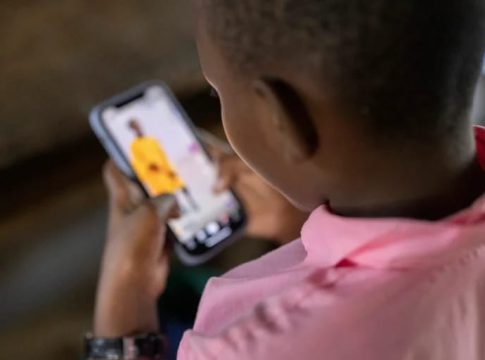In a concerning trend, approximately 20% of children under 17 have encountered unsolicited requests to engage in sexual conversations online.
Disturbingly, a considerable fraction of children between 12 and 17 years old in Ethiopia and Mozambique are inadvertently putting themselves at risk by divulging personal details to unknown individuals on the internet.
Moreover, around 13% of adolescents in the same age group in Kenya and Mozambique have faced intimidation or coercion to partake in online sexual activities.
Equally troubling is the fact that one-third of minors in the 9-17 age bracket in South Africa, and over 25% in Mozambique, proceed to in-person encounters with contacts initially made in the digital domain.
Recent analyses by leading African organizations advocating for child rights, the African Child Policy Forum (ACPF) and ChildFund, have laid bare an alarming escalation in online child sexual exploitation and victimization on the continent.
The data points to an acute need for concerted efforts aimed at curbing this increasing peril and safeguarding Africa’s youth from such egregious offenses.
A striking discovery of the research is the high percentage of children below the age of 17 in some African regions who have been approached for online sexual discussions.
In South Africa, a staggering one-third of these young individuals advanced to real-world meetups with those they met online.
READ MORE: Solar Energy: Nigeria Aims to Lead in Production Of Solar Technology For Africans
Such statistics shed light on the profound susceptibility of youngsters in the digital era and the extensive dangers they encounter on the web. The facility for predators to contact and manipulate children underscores the critical requirement for widescale digital security education and enhanced policing activities.
Dr. Joan Nyanyuki, the Executive Director at ACPF, highlights the prevalent dismissive attitude towards cyber offenses as ‘not genuine crimes’ engendering a situation akin to lawlessness in the virtual world.
This misconception grants cyber offenders leeway to exploit lax policies and enforcement, leading to a spike in online child exploitation incidents.
With Africa emerging as the potential new battleground for such abusers, it becomes crucial for state authorities and social groups to treat this issue with utmost gravity and devise and enforce effective deterrence methods.
In conclusion, the Africa Regional Director at ChildFund, Chege Ngugi expressed that
“Inadequate laws and services, including fledgling technology-based surveillance systems and severely underdeveloped digital forensics capacity have created an opportunity and a fertile ground for potential sex criminals,”
“The key question for African countries is whether or not they are adequately prepared to provide greater protection and safeguarding for children online.”




